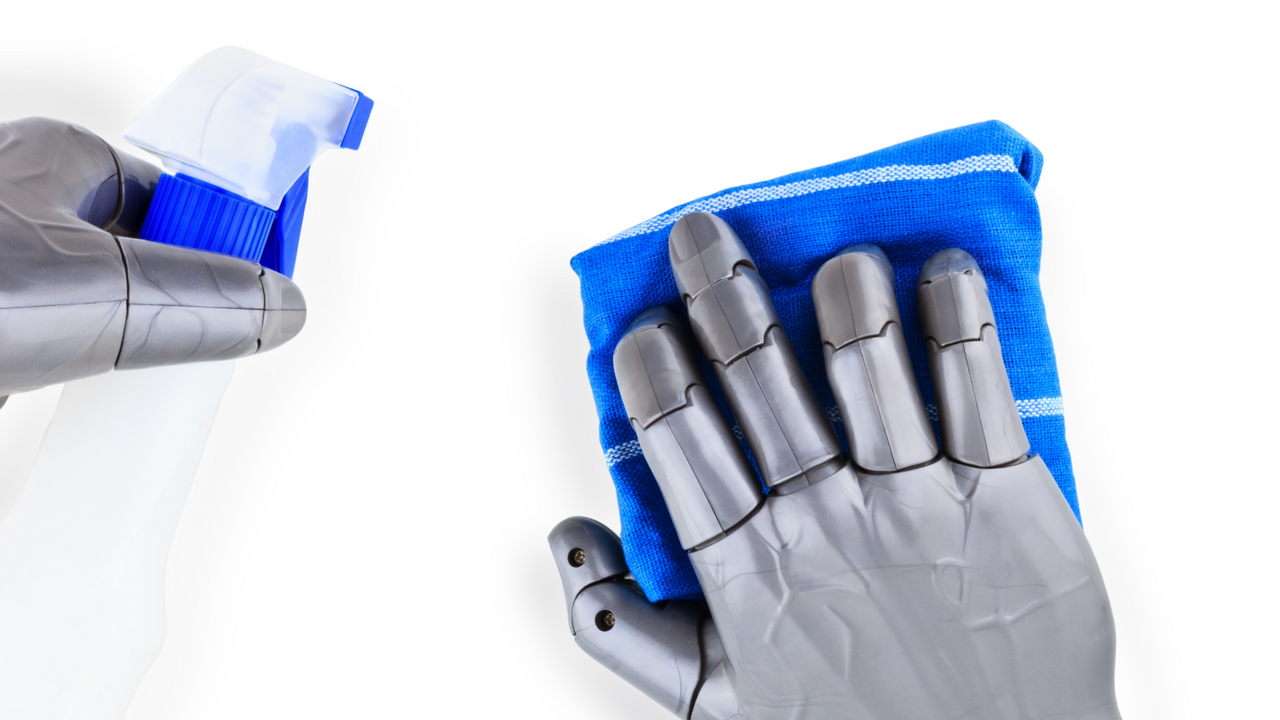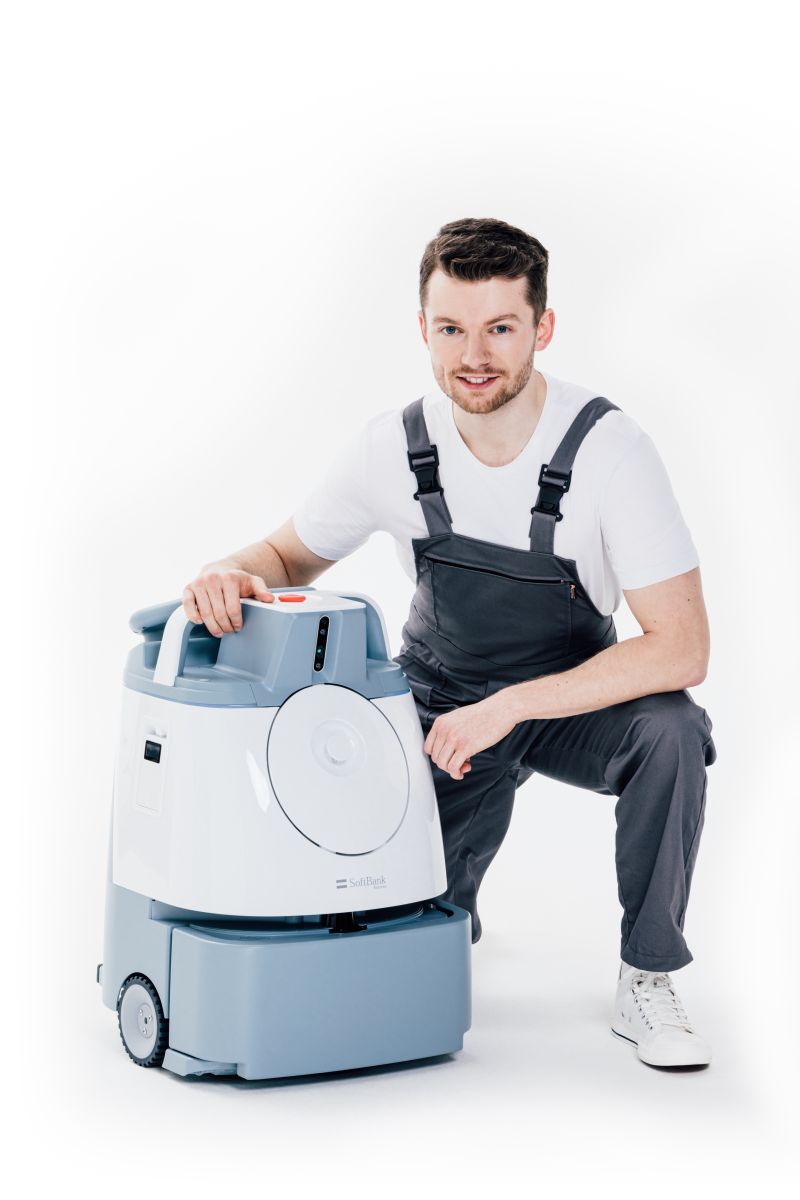Humans + Robots: The Way Forward for the Cleaning Industry?

*This originally appeared at https://www.cleanmiddleeast.ae/top-stories/technology/humans-robots-the-way-forward-for-the-cleaning-industry
There is no doubt that cleaning is among, if not the most affected of the facility management activities during and in the aftermath of the Covid pandemic. We saw an accelerated incorporation of autonomous cleaning robots in disinfection and cleaning of floors, particularly in large built environments with high foot traffic like airports, hospitals, and shopping malls. Data from AI company Brain Corp, which holds the distinction of powering the world's largest fleet of autonomous cleaning robots servicing the likes of Walmart in the US, reveal that their robots generated 3.3 million additional hours in 2020. In a study by intelligence firm ABI Research, more than 150,000 mobile robots will be deployed in stores with expected usage growing 46% annually through 2030. The same report projects a 30% increase in productivity in general in the next 10 years attributed to robotics; including the cleaning sector. Will humans be completely replaced by robots in the future?
Cleaning, particularly floor cleaning, has evolved so much in the last year with the incorporation of advanced AI in its autonomous system and the adding “teach and repeat” functionalities for easier implementation. There is increasingly lesser need for extensive technical knowledge to implement a robotic cleaning solution. Business models like “robot-as-a-service” have also lowered the barriers to entry, making robotics less expensive to implement. In reality, autonomous robots can and have replaced the more laborious, repetitive cleaning tasks such as those required in large spaces like airports, shopping malls, event venues and the like. But what about cleaning tasks requiring fine motor skills and judgement calls? Will robots be able to replace human front-line workers cleaning confined spaces like toilets, bathrooms, cabinets, and the like? Will robots be able to determine the need and frequency of cleaning, especially in the heightened conditions of a pandemic?
The Moravec Paradox
Named after the scientist Hans Moravec, who wrote in 1988, that "it is comparatively easy to make computers exhibit adult level performance on intelligence tests or playing checkers, and difficult or impossible to give them the skills of a one-year-old when it comes to perception and mobility". Simply put, robots and artificial intelligence may have superior computing powers, allowing them to scan through scenarios and data in milliseconds and processing the data into easily digestible results but they are far from humans in terms of sensory and perception skills. Floor cleaning is just one aspect of cleaning, but all other cleaning tasks require the use of the senses and cognitive skills that are not yet within the capability of robots and AI. Aside from inability to clean intricate and confined places and items, robots are not yet at par when it comes to judging the level of cleanliness or disarray of a space.
When cleaning is done in environments continuously exposed to changing external factors like erratic flows of people, unpredictable human behavior and incidents, human cleaners are still superior to making decisions. Human cleaners are able to judge changing situations and prioritize tasks based on the state and use of space, without elaborate and constant data required by robots and artificial intelligence. Human cleaners are able to assess in seconds the state of cleanliness or disarray of a space as soon as they see it.
So, which is the way forward for the cleaning industry?
The Rise of “Superteams”
Contrary to the common conjecture of robots totally replacing humans and the more apocalyptic “robots uprising” portrayed in pop culture and media and as proven by the Moravec Paradox; the reality is far from this. Aside from robots and AI In an article released by Deloitte entitled “Superteams, Putting AI in the Group”, leading organizations are taking a new tack: actively searching for strategies to integrate AI into teams to produce transformative business results. Deloitte defines these human-AI collaboration as “superteams”—groups of people and intelligent machines working together to solve problems, gain insights, and create value— as the next step in AI’s continuing integration into the world of work. Let us put this in context in connection to the cleaning industry.
Instead of robots totally replacing human cleaners, we see a “superteam” of humans + robots/AI in the future of cleaning. This has already happened with the use of “cobots” – cleaning robots that are operated by and works in harmony with human cleaners. Like Softbank Robotics’ Whiz below which takes care of the repetitive and laborious task of vacuuming, cobots free their human “team members” to have more time for essential cleaning tasks.
 Photo credit: Whiz by Softbank Robotics
Photo credit: Whiz by Softbank Robotics
If we extend the “superteam” concept to data-driven cleaning, data and feedback from frontline human cleaners can enhance automated algorithms that measure the need for cleaning in spaces like toilets with high foot traffic such as those in airports and shopping malls. One such solution was implemented by a facility management service provider in Spain, Optima Facility where they incorporated frontline worker feedback into automated algorithm determining the need for bathroom cleaning fed with data from sensors that counted the number of people entering the bathrooms, user satisfaction through “smileys” and a set of external data such as flight delays, weather conditions, etc. When they ran the algorithm without the input from the frontline workers, the results returned a less than 60% reliability.
The “superteam” concept has indeed arrived with the same Deloitte article citing that 59% of organizations say the redesign of jobs to integrate AI technology is important or very important for their success over the next 12 to 18 months, but only 7 percent say they are very ready to address this trend. In the cleaning industry, we see the tandem of human + robots/AI will become more of a reality, especially as the industry transitions from static to dynamic cleaning.
About the Global Alliance of Facility Management Innovators (FM Innovators)
The Global Alliance of Facility Management Innovators (FM Innovators) is the meeting point where FM decision-makers can stay abreast of the industry's evolution – from latest (and long-term) trends to innovative solutions fueled by startups. Membership is open to board members of FM service providers, corporate FM directors, heads of innovation, business transformation managers, and FM consultants who we collectively call FM Innovators.
For facility managers who want to start on their FMTech innovation journey, you can join our free basic membership here: Join FM Innovators.

